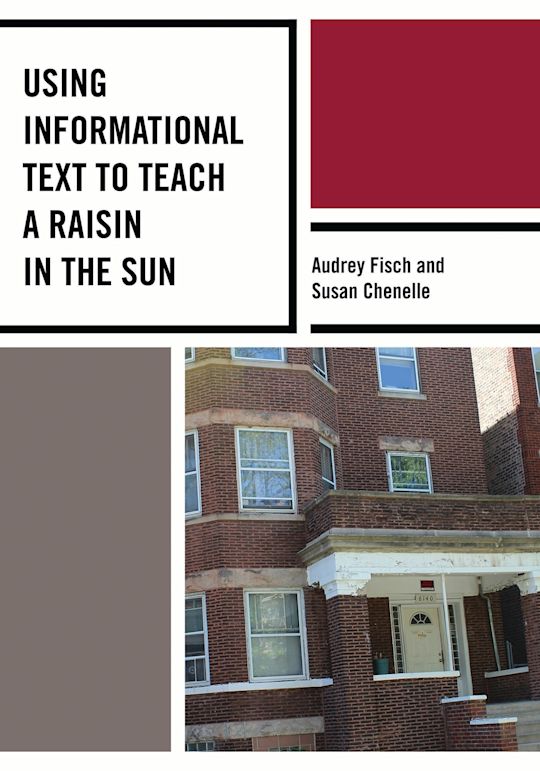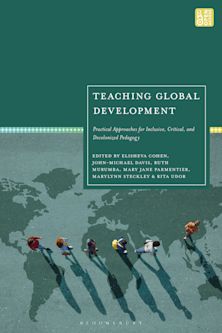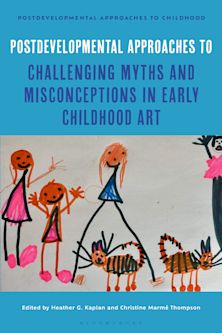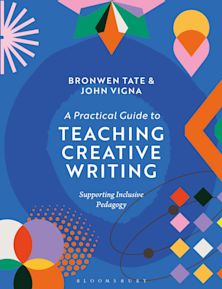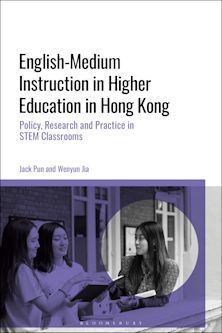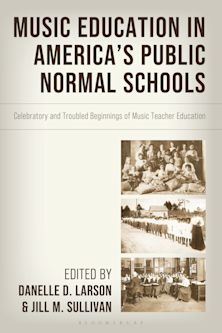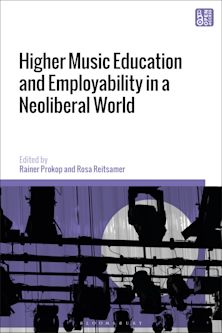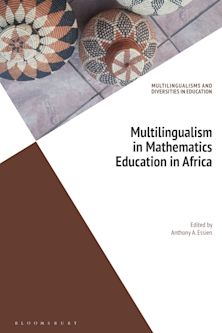- Home
- ACADEMIC
- Education
- Teaching Specific Subjects
- Using Informational Text to Teach A Raisin in the Sun
Using Informational Text to Teach A Raisin in the Sun
Using Informational Text to Teach A Raisin in the Sun
This product is usually dispatched within 3 days
- Delivery and returns info
-
Free US delivery on orders $35 or over
You must sign in to add this item to your wishlist. Please sign in or create an account
Description
The Common Core State Standards mean major changes for language arts teachers, particularly the emphasis on “informational text.” How do we shift attention toward informational texts without taking away from the teaching of literature?
The key is informational texts deeply connected to the literary texts you are teaching.
Preparing informational texts for classroom use, however, requires time and effort. Using Informational Text to Teach Literature is designed to help.
In this second volume (the first volume is on To Kill a Mockingbird), we offer informational texts connected to Lorraine Hansberry’s A Raisin in the Sun. Readings range in genre (commencement address, historical and cultural analysis, government report, socioeconomic research study, and Supreme Court decision) and topic (housing discrimination past and present, abortion, the racial and cultural politics of hair, socioeconomic mobility and inequality, the violence associated with housing desegregation, and the struggle against the legacy of systemic racism).
Each informational text is part of a student-friendly unit, with reading strategies and vocabulary, writing, and discussion activities.
Teachers need to incorporate nonfiction in ways that enhance their teaching of literature.The Using Informational Text to Teach Literature series is an invaluable supportive tool.
Table of Contents
Preface
Acknowledgements
How to Use this Book
Unit 1: What does Ruth risk by seeing “that woman”?
Rickie Solinger: The Abortionist: A Woman Against the Law
Loretta J. Ross: “African-American Women and Abortion”
Unit 2: Any homes available?
United States Department of Housing and Urban Development: Housing Discrimination Against Racial and Ethnic Minorities 2012
Unit 3: What’s with Beneatha’s hair?
Andrea Benton Rushing: “Hair-Raising”
bell hooks: Black Looks: Race and Representation
Alice Walker: “Oppressed Hair Puts a Ceiling on the Brain”
Unit 4: How does our world shape us and our opportunities?”
Lyndon B. Johnson: “Commencement Address at Howard University: `To Fulfill These Rights’”
Unit 5: How difficult would it really have been for the Youngers to buy a home in Clybourne Park?
City of Seattle: Restrictive Covenant
Chief Justice Fred Vinson: Shelley v. Kraemer
Beryl Satter: Family Properties: Race, Real Estate, and the Exploitation of Black Urban America
Unit 6: Is America the land of opportunity?
Raj Chetty, Nathaniel Hendren, Patrick Kline, and Emmanuel Saez: “Where Is the Land of Opportunity? The Geography of Intergenerational Mobility in the U.S.”
Unit 7: Do people have the right to live wherever they want, even if they are not wanted?Chicago Commission on Human Relations: “The Trumbull Park Homes Disturbances: A Chronological Report”
Rubrics
About the Authors
Answers to all sections are available on the series website: www.usinginformationaltext.com.
Product details
| Published | Feb 12 2016 |
|---|---|
| Format | Paperback |
| Edition | 1st |
| Extent | 252 |
| ISBN | 9781475821543 |
| Imprint | Rowman & Littlefield Publishers |
| Dimensions | 10 x 7 inches |
| Series | The Using Informational Text to Teach Literature Series |
| Publisher | Bloomsbury Publishing |
About the contributors
Reviews
-
This text takes all the intricacies of the Common Core State Standards and packages them neatly into a format that actually works in a real classroom. With a strong focus on vocabulary building, challenging non-fiction pieces, and digital media to which our secondary students can connect, these units turn A Raisin in the Sun into a cultural, political, analytical learning experience--without taking away the literature.
Meaghan W. Freeman, middle- and high-school English teacher, Willsboro Central School, New York
-
A reader's understanding of a text is only as comprehensive as the previous experience he or she brings to it. What, then, happens, when the landscape of a reader's life doesn't provide sufficient context? If you feel the impulse to shrug your shoulders and sigh, squelch it. Fisch and Chenelle have created a series of relevant formative activities and assessments to prime the pump for student inquiry. No more flying blind or feeling trapped within the four corners of a text -- students can engage in literature study through a research-informed, "real-world" lens.
Oona Abrams, ELA Teacher, Chatham High School, New Jersey
-
Fisch and Chenelle have created another collection of compelling informational texts that offer cross-curricular and Common Core-focused connections to core literature taught in middle and high schools across the United States. The authors have picked important and compelling nonfiction that helps students and teachers gain a deeper understanding into A Raisin in the Sun. Included with the informative nonfiction text pairings are Common Core-aligned lessons to address close reading, vocabulary acquisition, critical thinking, and writing skills. The authors invite teachers to utilize and modify each lesson to make it their own and help bridge the connection between literary and informative texts. This is a must-have resource for any teaching A Raisin in the Sun.
Michele L. Haiken, Ed.D., English teacher, Rye Middle School; Adjunct Professor, Manhattanville College
-
Using Informational Text to Teach A Raisin in the Sun does not shy away from the major social issues Hansberry included (and partly omitted) from her play, which were, and still are almost 60 years later, pressing social concerns: African-American women’s reproductive rights, hair and identity, racism, violence and housing discrimination. Chenelle and Fisch not only directly address these issues, but they encourage all teachers of Hansberry’s play to engage their students with these complex problems facing our society. Their book is a potentially transformative collection reaching across curricular and pedagogical concerns and educational levels with techniques for traditional lecture formats, student-centered learning and MOOC platforms.
Judy M. Bertonazzi, Ph.D., instructor, Cumberland County College









